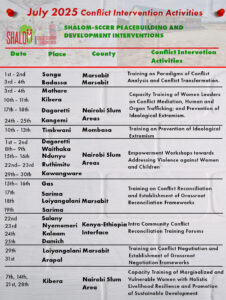(Rev. Dr. Patrick Devine)
(Augmented with relevant links and photos by the communication department)
Introduction
The Shalom-SCCRR vision: “A society where peace, justice and reconciliation prevails throughout Africa” inspires our mission: “To work for a society free of physical violence and unjust social structures in Africa.” The core objective of Shalom is to attain conflict transformation and reconciliation for the people of Africa, evidenced by sustainable peace and integral human development.
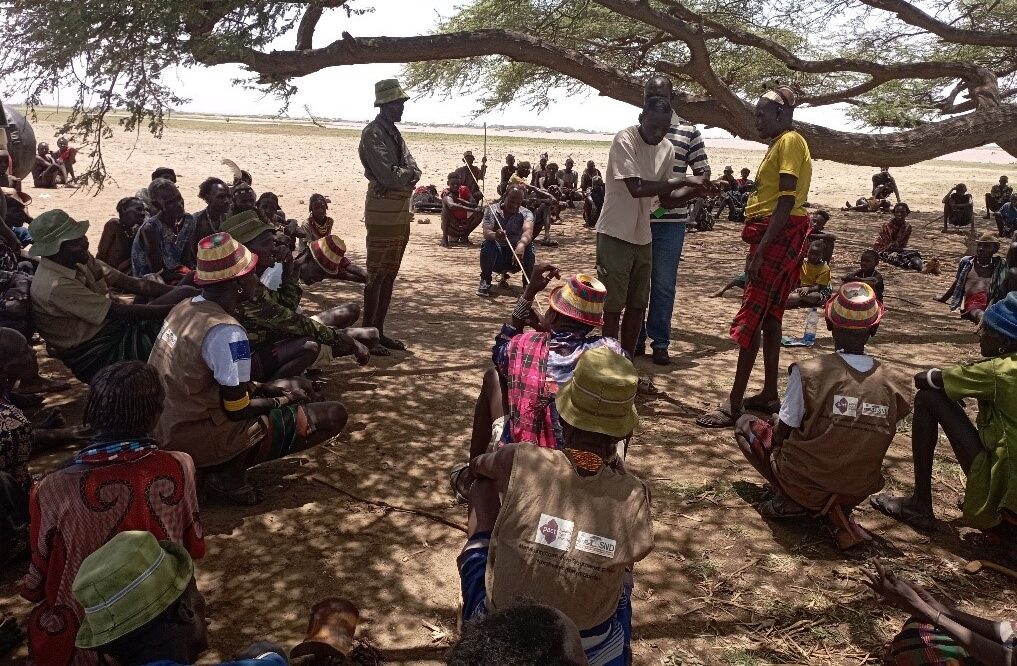
From a process perspective, this objective is underpinned by empirical research that engages the three analytical paradigms of Realism (Strategism), Structuralism (Peace Research) and Conflict Research. Based on the premise that paradigms evolve, these are complemented by what can be described as paradigmatic approaches to peacebuilding mostly in Africa today, viz, peacebuilding as social justice, peacebuilding as stabilization, and peacebuilding as liberal governance.
The research is followed by conflict transformation interventions at the individual, relational, structural-institutional, cultural and religious-ideological levels, leading to reconciliation forums. Running through the seams of reconciliation processes is the reality that conflict has a memory that is resilient, robust, moored in culture and is transgenerational. Unfortunately, conflict memory is often distorted by erroneous historical narratives and media reporting which negatively impact the analytics, processes and goals of conflict settlement and resolution. (https://shalomconflictcenter.org/recalling-prof-wanakayi-k-omoka-phd-understanding-of-the-philosophy-and-work-of-shalom-sccrr-augmented-with-2022-shalom-sccrrs-achievements-and-results/)
From the standpoint of the humanitarian / peace / development nexus, it is self-evident that in conflict environments where people are killed, maimed and displaced persistently, the essential social and religious values of peace, truth, justice and mercy cannot take deep communal root. These gospel values are of utmost importance for people trying to live normal lives; aspiring to the fullness of sustainable peace and development in the process of realizing reconciliation. Reconciliation is ultimately oriented to having proper relationships with the ‘Divine’, humankind, one’s inner-self, and creation / environment.
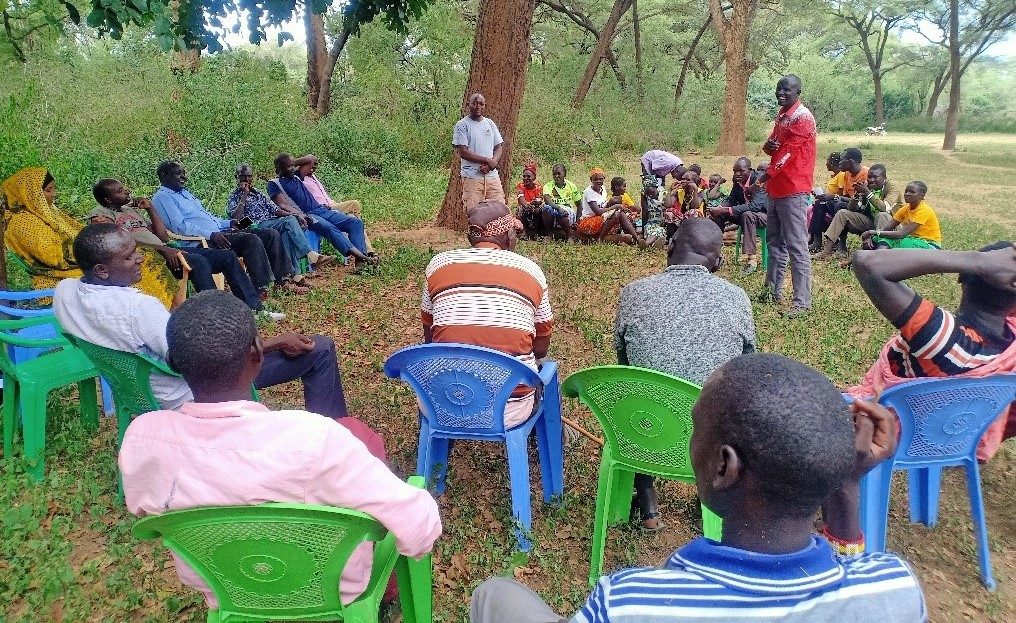
Of equal significance within the same conflict environments is the fact that communities cannot experience sustained development because periodically schools, hospitals, religious amenities, formation facilities and other critical infrastructure become inoperable or destroyed. Without attending to the underlying causes of manifest and structural violence, we will be forever rebuilding/rehabilitating development institutions, while not overlooking the moral-ethical indebtedness and legal obligations to provide humanitarian interventions/aid insertions.
Comprehensive knowledge of the humanitarian/peace/development nexus interplay at an academic and practitioner level is imperative in policy making and implementation. This knowledge is essential if a more equal, equitable, peaceful and sustainable planet is to emerge. In line with the ‘Brundtland’ philosophy, sustainable development is oriented to meeting the needs of the present generations without compromising the ability of future ones to meet their needs.
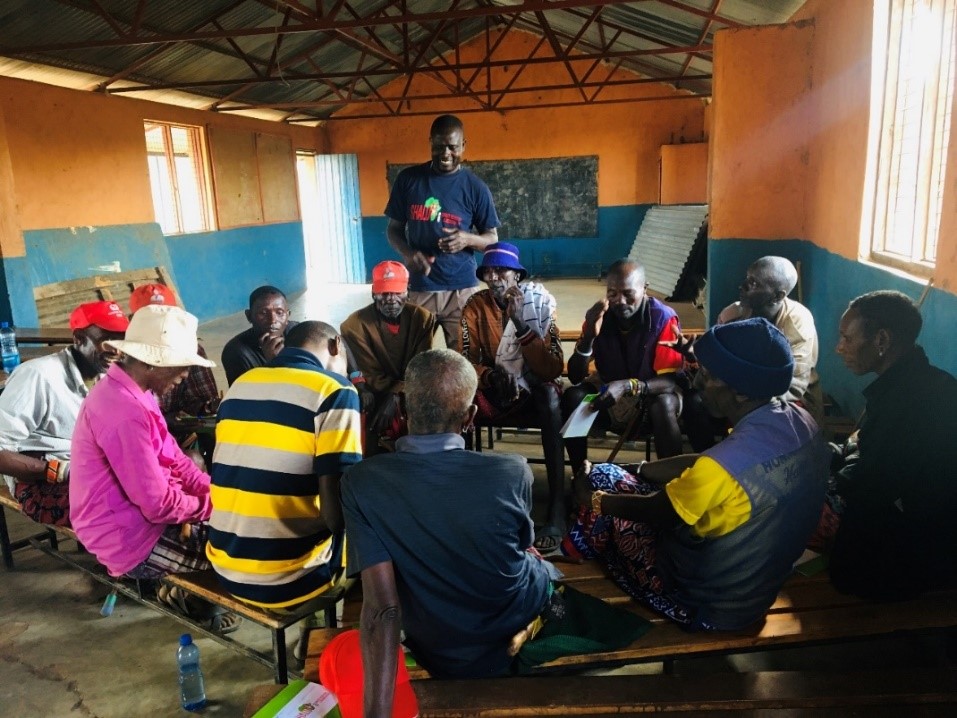
The provision of holistic human security should always determine the humanitarian / peace / development nexus intervention dynamics. Human security is inextricably linked to environmental security and reconciliation. Bearing in mind the Universal Declaration of Human Rights (UDHR), human security is significantly anchored in the realization of basic and ontological human needs. From a human security perspective, structural violence factors related to variables concerning ‘core resources’ for survival, the ‘political economy’ of ethical governance and ‘infrastructure-insecurity’ need constant surveillance. History continues to tragically demonstrate that structural conflict left untransformed has a lethal potential to escalate into manifest violence. (https://shalomconflictcenter.org/human-rights-are-a-foundation-of-shalom-sccrrs-conflict-resolution-and-reconciliation-interventions-2/)
The pursuit of reconciliation is imperative in humanity’s quest for human security, revering the dignity of life, and ensuring environmental sustainability. The values of peace, truth, justice and mercy, holistically realized in conflict environments, are the oxygen of reconciliation. Shalom-SCCRR’s organizational work ethic centres on accompanying, enabling and inspiring people towards reconciliation in all of these interconnected domains.
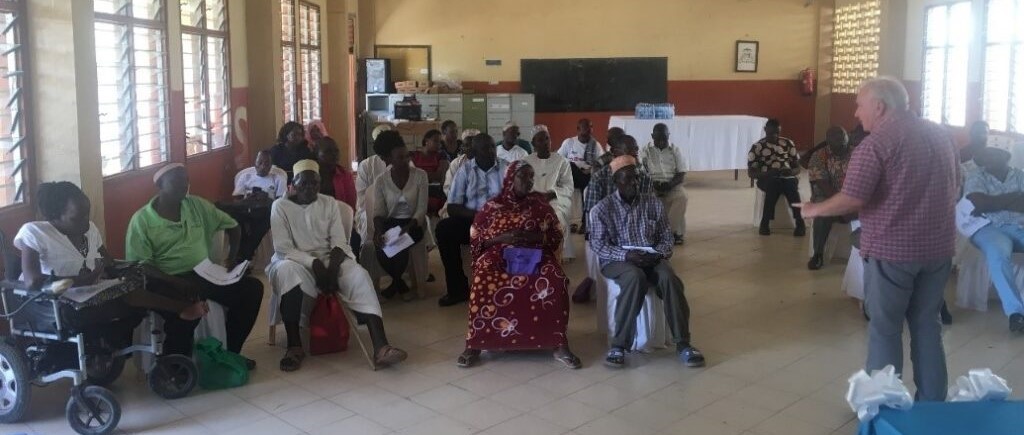
Two Major New Initiatives during 2022:
The Shalom Empowerment Center addressing Violence against Women and Children,
&
The Mary and Joseph Life Center
Shalom-SCCRR’s mission is to prevent and transform all forms of manifest and structural violence inflicted on human life. Violent environments generate enormous suffering with women and children disproportionately bearing the brunt more often than not. The social conditions and challenges that women and children face on a daily basis in impoverished urban settlements and other marginalized remote locations, are extremely arduous and protracted. We actively train and engage hundreds of women influential opinion shapers in working towards breaking the vicious cycle of conflict in these locations. Since its founding, Shalom-SCCRR has focused on addressing issues of women and childrens’ right to their dignity, safety and security.
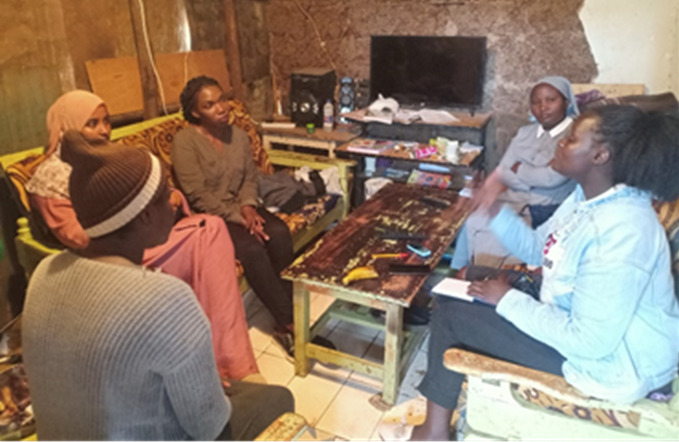
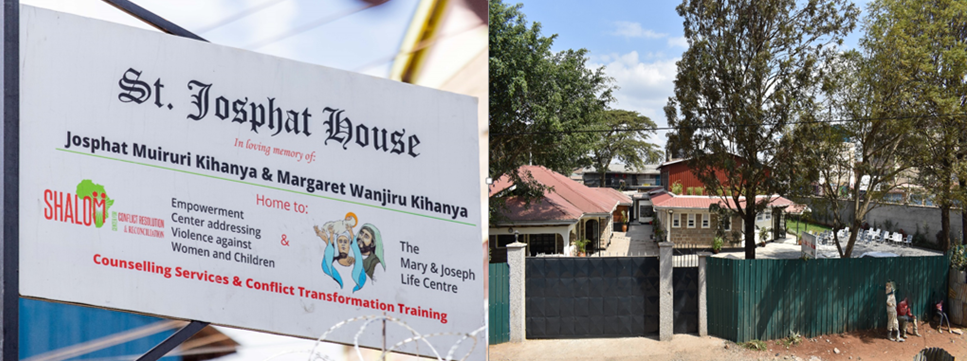
The Shalom Empowerment Center (SEC) addressing Violence against Women and Children is a new and important specialized outreach program, primarily attending to violence against women and children in the slum areas around Nairobi. However, its doors are open to violence-affected people and populations from other areas. The Center gives special attention to all forms of manifest and structural violence; inter-ethnic, inter-religious, domestic violence, sexual violence, among others. In doing so the Center provides trainings on conflict transformation skills, peacebuilding techniques, Post-Traumatic Stress Disorder (PTSD) healing approaches, and other relevant interventions to women and children suffering from violence. (https://shalomconflictcenter.org/eastern-africa-shalom-empowerment-center-sec-addressing-violence-against-women-and-children-concept-document/)
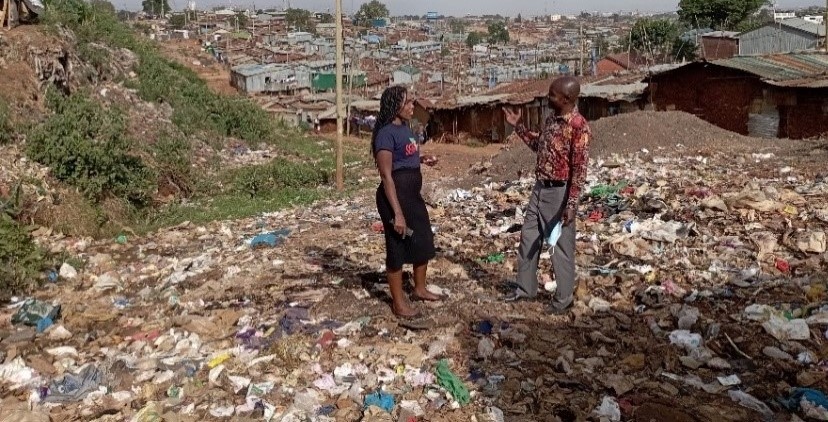
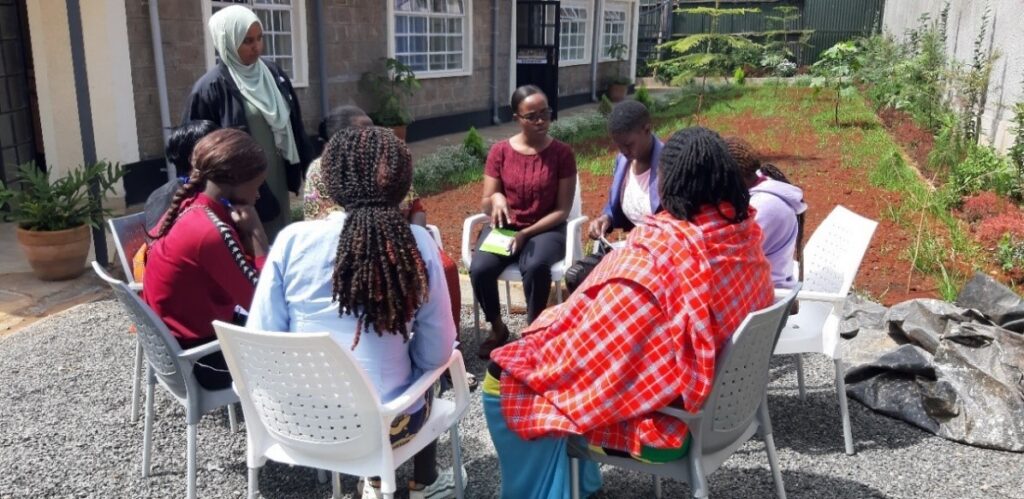
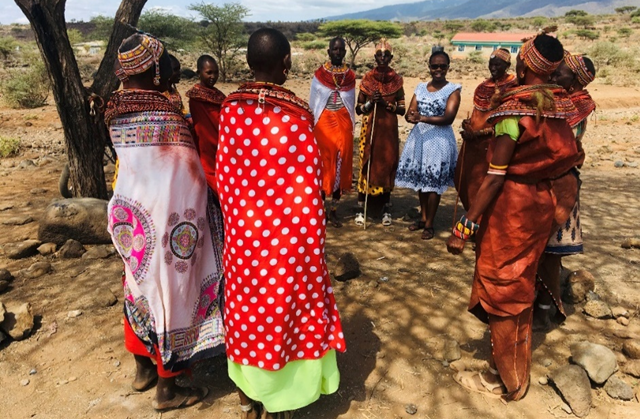
The Mary and Joseph Life Center (MJLC) has a Vision of “A society where the dignity of human life, women and children, including the unborn, are free from violence and unjust social structures” which underpins its Mission, “To promote the human rights and dignity of women and children, addressing all acts of violence against them from conception to natural death”. While offering its own specializations it will draw on the vision, mission, and capacity of the Shalom Empowerment Center (SEC) when and where relevant.
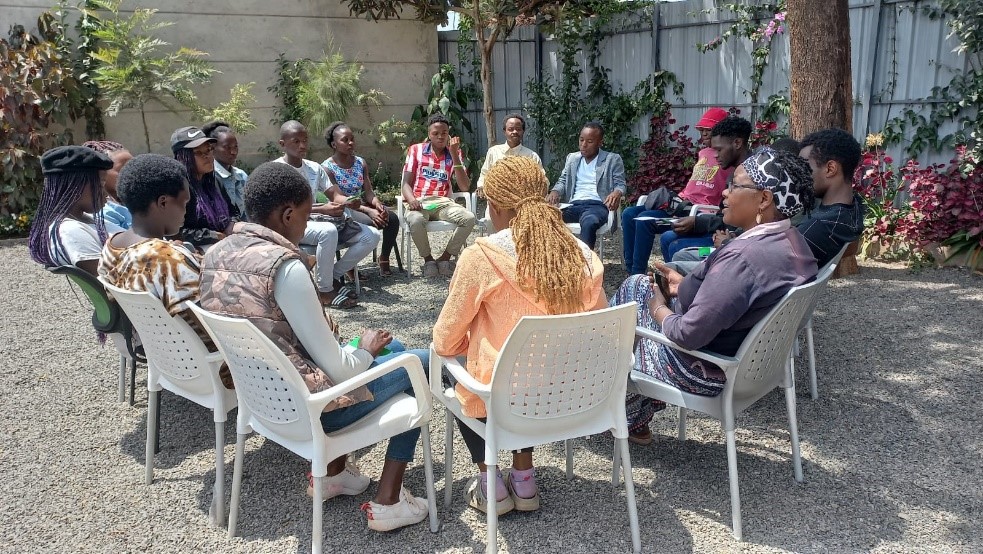
(https://maryandjosephlifecenter.org/mary-and-joseph-life-center-mjlc-concept-document) https://maryandjosephlifecenter.org/).
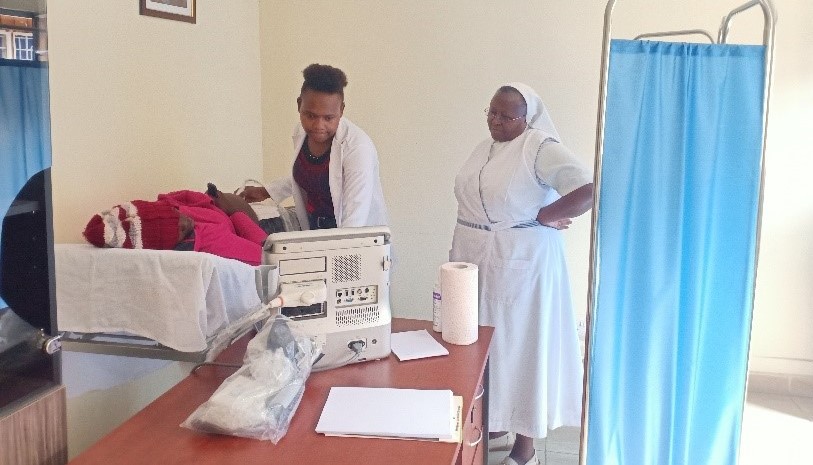
Shalom-SCCRR Objectives Operationalised
In line with the overall policy directions from the Shalom-SCCRR Board of Directors in Africa, our objectives were operationalised in 28 conflict zones where manifest and structural violence and religious ideological extremism needed to be transformed. Shalom-SCCRR’s humanitarian / peace / development (including Covid-19 prevention and treatment interventions) concentrated mainly on inter-ethnic and inter-religious communities in Turkana, West Pokot, Samburu, Marsabit, Nakuru, Kisumu, Isiolo, Nandi, Uasin Basin-Eldoret, Garissa, Mombasa and Nairobi. Many of these conflict environments are located where Kenya’s northern regions interface with the borders of Ethiopia, the Ilemi Triangle, Uganda, South Sudan and Somalia. (https://shalomconflictcenter.org/2022-shalom-sccrr-results-and-achievements-2/)
2022 Outputs and Achievements in
Conflict Transformation and Peacebuilding
- 125 Conflict transformation and Peacebuilding training workshops for 36 significant Shalom-SCCRR Peace Groups of influential opinion shapers in the urban informal settlement conflict hotspots, marginalized areas of northern Kenya and at the Kenya-Ethiopia-South Sudan-Uganda interface.
- 3,551 Members of Shalom-SCCRR Peace groups empowered with conflict analytical skills for designing and implementation of locally driven and sustained conflict transformation and peacebuilding initiatives.
- 17 training workshops on prevention of Religious Ideological Extremism in 5 project areas located in Nairobi and Mombasa informal settlements/slums in Kenya.
- 105 Shalom-SCCRR trained and supported Community Peace Resource Persons (Group Animators, Community Facilitators and Conflict and Peace Monitors) active in implementing locally established Conflict Monitoring Intervention (CMI) Mechanisms in 28 conflict locations (Kenya-Ethiopia-South Sudan-Uganda Interface, northern Kenya arid-areas, and urban informal settlements/slums) for timely and effective conflict interventions.
- 30 Prevention of Electoral-violence Workshops conducted in conflict hotspot areas –pre-Kenya’s 2022 general elections. Shalom-SCCRR trainers equipped its Peace groups with necessary skills to identify election-related conflict risks and to apply proactive conflict prevention interventions.
- 760 Women from informal urban settlements (slums) Empowered with analytical skills and Peacebuilding techniques, for Conflict Transformation and Reconciliation.
- 43% Women active involvement in Shalom-SCCRR local peacebuilding initiatives, a 7% increase compared to 2021 statistics.
- University Elective Course, offered at by Shalom-SCCRR Tangaza University College, Constituent College of The Catholic University of Eastern Africa; ‘Conflict Resolution and Reconciliation’, attended by Students of Theology and Islamic Studies from Africa, Europe, Asia and Latin America.
Achievements in School / Educational Development Projects
- 52 School/Educational Development Projects completed, emerging from Conflict Transformation interventions.
- 14,500 Pupils and Students benefitted from Shalom-SCCRR funded projects: Classrooms, Accommodation facilities, Solar lighting systems, Gender sanitary items, Books, Desks, School Water systems, Science Laboratory Equipment etc.
- 18,096 Pupils and Students benefitted from Shalom-SCCRR Peace Education Syllabus implemented in primary and secondary Schools located in violent conflict zones.
- 49 Shalom-SCCRR established and supported SHALOM Peace Clubs, implemented conflict transformation activities in areas affected by interethnic conflicts/ religious ideological extremism and marginalization.
- Launched the Prof Wanakayi. K. Omoka Library at the Shalom-SCCRR Eastern Africa Headquarters at Karinde, Nairobi, Kenya.
- 2 Medical Centers in violent conflict and marginalized zones provided with relevant education training to health care workers, medical equipment, a variety of essential items (PPEs, laboratory reagents, detergents etc.)
Shalom Empowerment Center;
Achievements
Addressing Violence against Women and Children
- 760 Women from informal urban settlements (slums) empowered with analytical skills and Peacebuilding techniques, for Conflict Transformation and Reconciliation.
- 1,628 Women living in acute conflict situations/Slums, engaged in 86 Training Workshops, Empowered with Holistic Livelihood Resilience Capacity.
- 43% of all participants are Women in all Shalom-SCCRR Conflict Transformation, Peacebuilding School/Development Projects and Negotiations coming from the grassroot level within their Traditional Ethnic Communities and in the Urban Informal Settlements. Participants predominantly come from the informal urban settlements (slums) located around Nairobi (Riruta; Waithaka; Dagoretti; Kibera; Mathare; Kariobangi; Korogocho; Kangemi; Mtego; Kawangware; and Huruma), as well as in marginalized conflict regions in the semi-arid terrains where Kenya interfaces with Ethiopia, South Sudan and Uganda.
(https://shalomconflictcenter.org/shalom-empowerment-center-sec-2022-results-and-achievements/)
Mary and Joseph Life Center; Achievements
- 9 urban informal settlements or slum areas; Supporting and Empowering Women and Children
- 70 Educational Workshops/ seminars implemented, empowering 2,042 women in informal urban settlements/slums with supportive guidance: psychological, spiritual and economic livelihood resilience.
- 380 pregnant girls/women benefited from Ultrasound (Sonogram) Services (since Sept,2022).
- 120 clients (individuals and groups) engaged in more holistic and intensive Counselling.
(https://maryandjosephlifecenter.org/2022-shalom-sccrr-mary-and-joseph-life-center-mjlc-achievements/)
In Nairobi’s poor urban settlement areas, we consistently engaged substantively with the residents. One cannot over appreciate the generosity, planning, logistics, professionalism and hard work that were applied in these intervention processes on the frontlines of manifest and structural violence. The connectivity between our conflict transformation-peacebuilding interventions and infrastructural development activities, including attention to overcoming Covid-19, continued to be of critical importance.
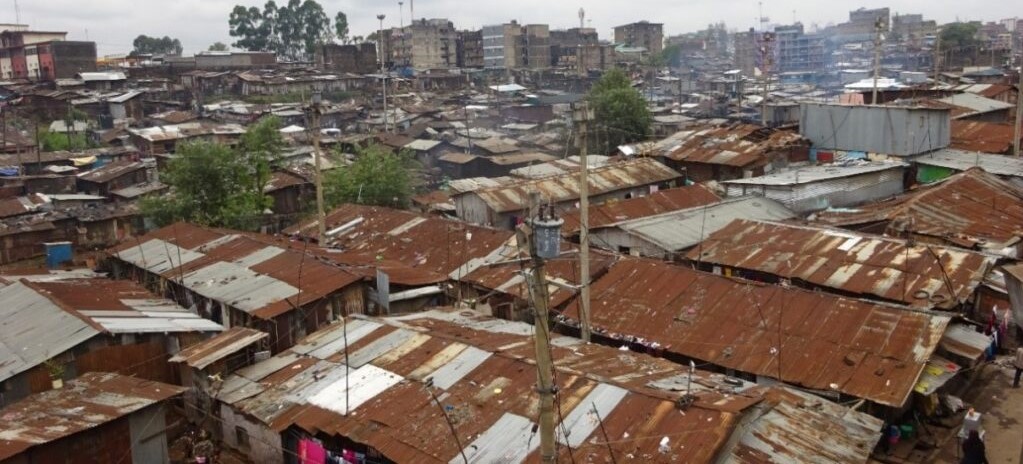
Research Library
established in memory of Prof. W.K. Omoka, (RIP),
former Director of Research for Shalom-SCCRR
The whole Shalom-SCCRR team is delighted to have participated in the launching of the Prof. W.K. Omoka Library at our headquarters outside Nairobi. Shalom lost a great team-member in Prof. Omoka who died due to complications arising from contracting Covid-19 in 2021. He was an accomplished professional, employee and resource person. No words can express the heart-breaking experience this sad event had for our organization and all those who had the blessed experience of working with him during his life-journey. He was a renowned lecturer having worked at Kent State University, Ohio, USA for many years, and in Kenya at the University of Nairobi, the Catholic University of Eastern Africa, Tangaza University College and Hekima University College.
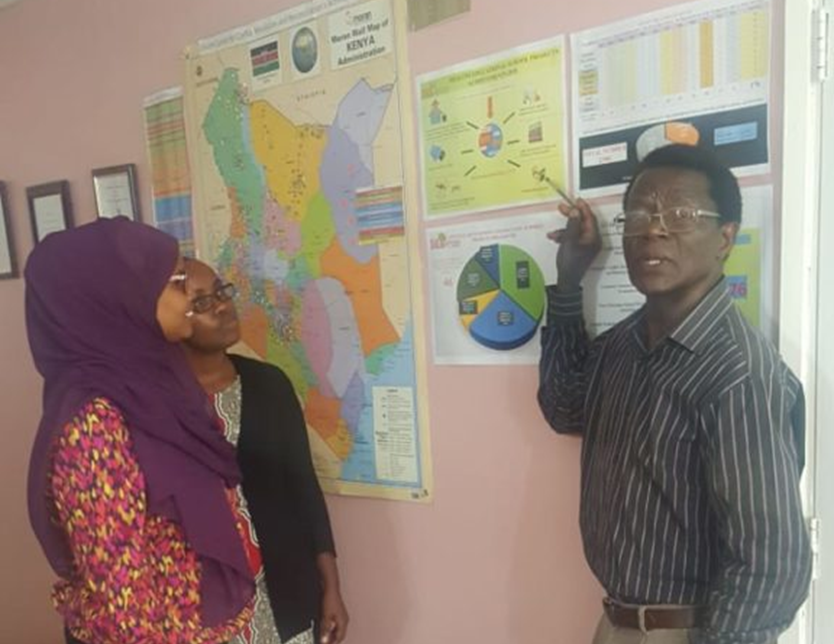
Prof. Omoka, a Quaker by religious affiliation, joined the Shalom-SCCRR team in 2009. His contributions were held in the highest esteem by some of the top universities around the world and by distinguished humanitarian-peace-development practitioners. He was particularly eminent in the fields of sociology, peace studies, social research methodologies and statistics; much sought after by numerous third level institutions and by conflict transformation influential opinion shapers working in environments of manifest and structural violent conflict. In terms of ensuring that the quality of research was of the utmost academic rigor he was second to none. May he rest in Peace.
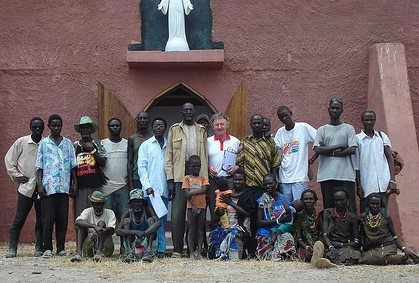
Our Core Values
Shalom-SCCRR’s core values grounded within a framework of human rights and the dignity of life, are non-violent societal transformation, integral human development and security, inter-religious tolerance, peace, truth, justice, mercy, environmental integrity, and respect for local culture and traditions. These core values are manifested in our governance, policy documents, planning, design, outputs and results. Moreover, they underpin the choice and quality of our board, management, team members and partner institutions/collaborators/consulters around the world, (https://shalomconflictcenter.org/wp-content/uploads/2021/04/Shalom-SCCRR-Who-We-Are-2020-2021.pdf).
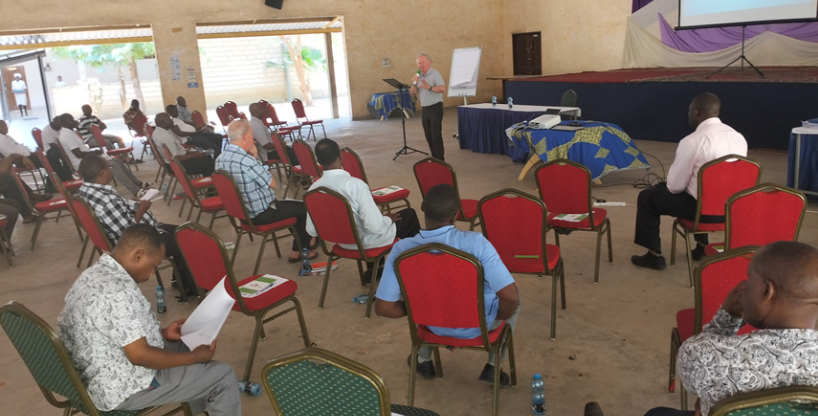
Inter-ethnic conflict in semi-arid underdeveloped zones, the contexts of religious ideological extremism, and violence against women and children (born and unborn) dictate that the interventions by Shalom-SCCRR involve extraordinary diplomatic, organizational and logistical efforts from the board, management, team members, and our support units around the world. Our core values are performance value beacons for all involved.
Shalom-SCCRR condemns the abominable crime of human and organ trafficking. We are ever vigilant to assure that all those we train are attentive to these crimes. Shalom continues to be open to supporting interventions to counter this evil. Our peace advocacy and development interventions in Sudan and South Sudan continue to remain ever-important in planning our interventions also. Much appreciation to everyone involved in supporting the implementation of our core values from the tens of thousands of people who benefit from our combined efforts.

Rigorous Research is the Foundation of our Work
Shalom-SCCRR’s Research Team were assiduous in respect to research methodology and keeping the organisation’s interventions and processes to the optimum level. Francis Mwangi MA in charge of Monitoring, Evaluation, Learning and Reporting (MERL) was ever fervent in maintaining the research program to a rigorous high level. The continuing enthusiastic and voluntary participation of government, religious and civic society organisations in Shalom-SCCRR symposiums, research collection methodology, conflict transformation and peace training programmes, advocacy on peace-truth-justice-mercy issues (reconciliation), inter-religious Dia-Praxis initiatives, fostering of inter-ethnic and inter-religious education, institutional developments, confirms the importance of our organisation’s contribution.
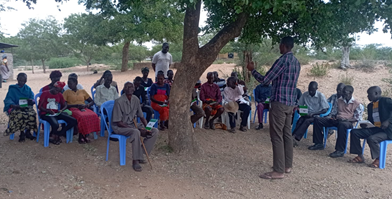
Shalom-SCCRR personnel collaborate in numerous project initiatives with governments and IGAD (Intergovernmental Authority on Development) personnel, on humanitarian / peace / development interventions. We continue to advocate for the Great Green Wall across Northern Africa; this is the construction of a 15 kilometres wide barrier of trees and other cultivations to prevent the spread of the Sahara Desert southwards, and associated desertification conflict problems.https://shalomconflictcenter.org/building-the-sahel-great-green-wall-in-the-face-of-localized-cross-border-conflict-how-shalom-sccrrs-peacebuilding-methodology-can-bear-on-the-conflict/
We are constantly monitoring the impacts of environmental degradation, climate change / global warming, structural violence, among others on peace and conflict quotients. I have addressed this issue at public events and lectures in Africa, Europe and the USA. The advocacy role of Shalom-SCCRR in these processes involves specialist expertise, and this is one of the reasons that all our team is required to have a minimum of a MA qualification in relevant academic disciplines.
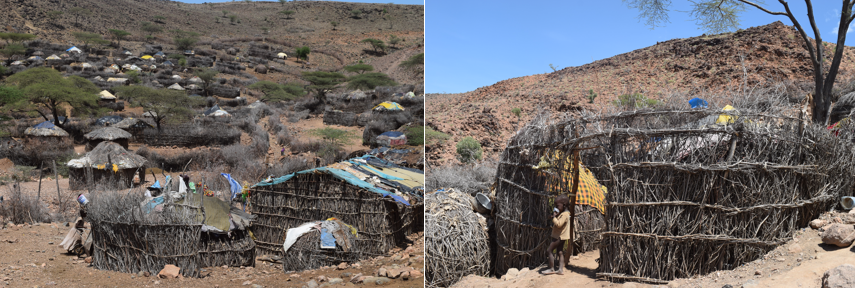

Elections and Violence
We operate against a background where, during post-election violence in Kenya in the past 15 years, over 1,300 people were killed, tens of thousands maimed, and hundreds of thousands displaced. Since then Shalom-SCCRR has continued to intervene rigorously with analytic, conflict prevention-transformation and reconciliation processes, working with the key influential opinion shapers from both ethnic communities accompanied by government administrative personnel. In preparation for the national elections in Kenya during 2022 Shalom-SCCRR implemented 30 Prevention of Electoral-violence Workshops conducted inconflict hotspots, with a particular focus on the Kisumu-Nandi borderline and Mombasa.
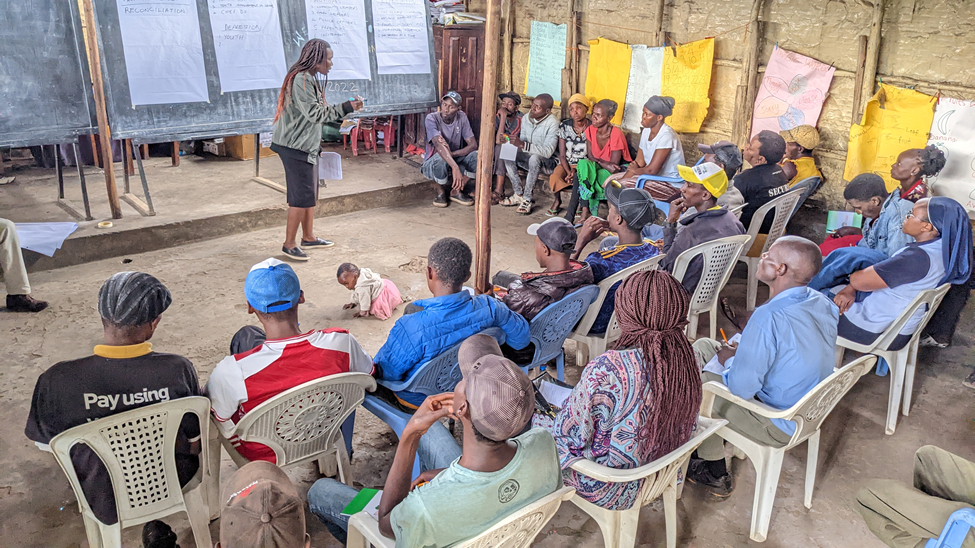
In 2017 there was widespread manifest violence along the Kisumu-Nandi borderline. Shalom-SCCRR trainers equipped its Peace Groups in these conflict environments with necessary skills to identify election-related conflict risks and to apply proactive conflict prevention interventions. Shalom in recent years helped develop 36 school/educational development projects ameliorated by joint development initiatives among the local communities to further the conflict transformation/prevention/peacebuilding process in the area. The 2022 elections passed without violence and Shalom-SCCRR received widespread acclaim for this success from the local influential opinion shapers and administrators.
In the past, Shalom-SCCRR’s professionalism in the past had also received wide ranging attention and coverage from media outlets in Africa, and globally, such as BBC, Voice of America (VOA), Germany’s Deutsche Welle, several Irish media outlets, Xinhua News Agency in China, Terry Collins and Associates-Global Media Relations in Canada, Living in Faith in India, Independent Catholic News in the UK, and many other news media.
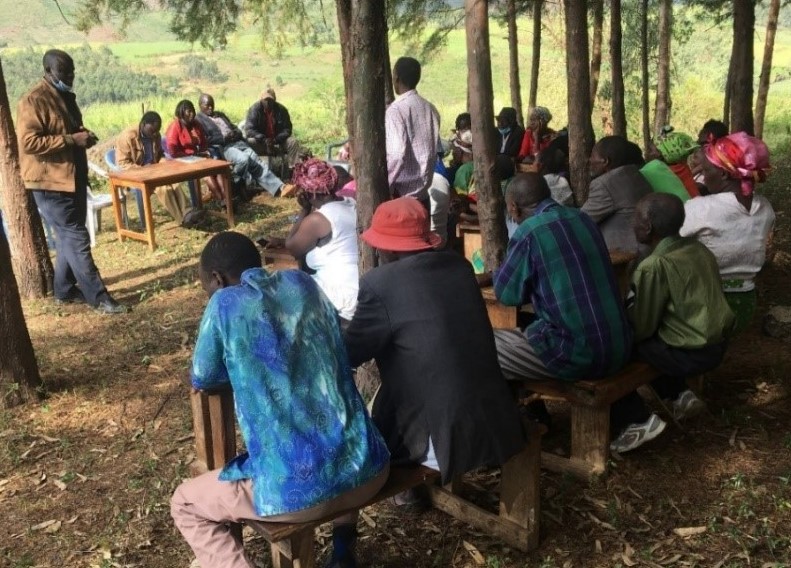
(https://shalomconflictcenter.org/shalom-sccrr-empowered-communities-sustaining-peace-at-the-kisumu-nandi-borderline-during-the-august-2022-kenyas-general-elections/https://shalomconflictcenter.org/shalom-sccrr-success-journey-with-the-community-towards-building-cohesion-to-counter-inter-ethnic-and-political-intolerance-along-the-kisumu-nandi-borderline/).
Governance and Fundraising
The highly qualified board of Shalom-SCCRR (Africa) are dedicated and thorough in providing governance leadership, oversight expertise and wisdom during the year. This strong structure and leadership underpins our performance, growth, authenticity and collaborations in delivering on the organisation’s vision, mission, methodology and core values. As always, our accounts were audited in accordance with International Standards on Auditing (1SAs) and International Ethics Standards Board for Accountants Code of Ethics for Professional Accountants (IESBA code). The independently audited accounts are a core instrument in demonstrating the quality of Shalom-SCCRR’s governance, administration and project product delivery.
External fundraising, in collaboration with the contributions of local communities, to facilitate the realisation of our vision and mission is critically important for success. During 2022, we continued our close relationship and support to the fundraising efforts of our affiliate branches around the world. We welcome the ever-increasing number of individual donors to our support units. The gratitude of Shalom-SCCRR in Africa and that of our beneficiary communities is immense.
Appreciation to our Donors and Supporters
We are ever grateful to all donors, partners and stakeholders all over the world who continue supporting the work of Shalom-SCCRR. Since the organisation’s founding in eastern Africa, its registered units, and committees, in the USA, Republic of Ireland, N. Ireland and Britain have provided over 90% of our funding. This support further strengthened Shalom-SCCRR’s resolve and commitment to its vision and mission during 2022. We also continued the consolidation and updating of our organisational governance and range of policies to ensure good practice, accountability, effectiveness, transparency, and integrity. Institutional strength is critically important because it impacts directly the work we do in conflict environments. The whole work-ethic process within the organisation is constantly appraised in respect to governance, performance, authenticity, growth and collaboration.
The Shalom-SCCRR team are ever diligent in maintaining the organisation’s high operational standards that are recognised nationally, regionally, and globally as evident in its prestigious accreditation by the UN. The approach, with its emphasis on community leadership, stakeholder participation, high technical competency, logic models, results frameworks, stories of change and advocacy linkages has received international profile acknowledgement in the context of current best practice within both the peacebuilding and development sectors.
Appreciation to our Management and Team Members
Our gratitude goes to Shalom-SCCRR’s management and team members for their accountability and dedication to high standards during the year. The board again offers its deep appreciation to Rev. Oliver Noonan MA, (PhD Candidate) Executive Director, for exemplary professionalism in stewardship, project oversight and the financial administration of the organisation. The board also wishes to thank the Senior Project Officer, Godfrey Okoth MA, (PhD Candidate), Mrs Judith Akedi Otsieno MA, Lead Project Officer at the Shalom Empowerment Center (SEC) and the Mary and Joseph Life Center (MJLC), the whole Shalom-SCCRR team and all organisational partners, for their conflict transformation/peacebuilding research, fieldwork, school-educational development projects supervision, monitoring-evaluation-recording-learning, communication, and the quality of progress accomplished during the year. Our appreciation extends to our finance department of accountant Kipkoech Kipruto ACCA (Association of Chartered Certified Accountants), (B. Com candidate) his assistant accountant Remy Ndiema CPA (Certified Public Accountants), B.BM, and all involved in auditing our accounts, for their integrity, professionalism and rigour.
As a result of the past twelve years’ work, the lives of hundreds of thousands of men, women, children and families, living previously in dire conflict and underdeveloped circumstances, have been constructively transformed. You have had an enormous positive influence on the livelihood resilience of present and future generations providing human security and joyful hope. Because of the work of Shalom-SCCRR, it is innumerable the number of individuals, families, and communities who are alive and well today, experiencing the fulfilment of living in more just and stable societies. They are increasingly able to meet their basic human needs, actualize their potential, interact with the ‘Divine’, and the environment in a wholesome, tolerant, inclusive and reconciled manner.
International Engagements and Academic Lectures
The Shalom-SCCRR humanitarian / peace / development nexus of interventions continues to attract high profile attention worldwide. A rescheduled lecture that I was to present at Harvard Kennedy School of Public Policy in 2020 (postponed due to Covid-19 restrictions) took place in November 2022. (https://shalomconflictcenter.org/shalom-sccrrs-international-chairman-rev-dr-patrick-devine-addresses-the-harvard-kennedy-school-usa/). I also gave a module in February at Stellenbosch University in South Africa to MA students, on Conflict Transformation and Peacebuilding methodologies, with particular focus on Religious Ideological Extremism, (https://shalomconflictcenter.org/stellenbosch-university-south-africa-invited-rev-patrick-devine-phd-from-the-shalom-center-for-conflict-resolution-and-reconciliation-sccrr-to-present-an-academic-module-to-its-masters-of-divinit/).
In June I fulfilled a commitment to present a lecture on the same topics to the National Justice and Peace Network Conference in the UK (https://shalomconflictcenter.org/fr-patrick-devine-phd-lecture-at-the-national-justice-peace-network-njpn-conference-2022-uk/).
Our MoUs (some under review for renewal), partnerships and collaborations with United Nations (UN), Intergovernmental Authority on Development (comprised on 8 countries in Eastern Africa)IGAD, the Edward M. Kennedy Institute for Conflict Intervention at Maynooth University, the Senator George Mitchell Institute for Global Peace, Security and Justice at Queens University Belfast, AMECEA (Association of Member Episcopal Conferences in Eastern Africa), ACWECA (Association of Consecrated Women in Eastern and Central Africa) and the Society of African Missions (SMA) are valued relationships for Shalom-SCCRR. We continue our partnership with Tangaza University College Kenya fulfilling the Memorandum of Understanding (MoU) signed in May 2021. Fr. Oliver Noonan MA, led a team of Shalom-SCCRR personnel in providing a course on Conflict Resolution and Reconciliation at Tangaza University College, and I continue to fulfil numerous duties as a Council Member of the same university college.
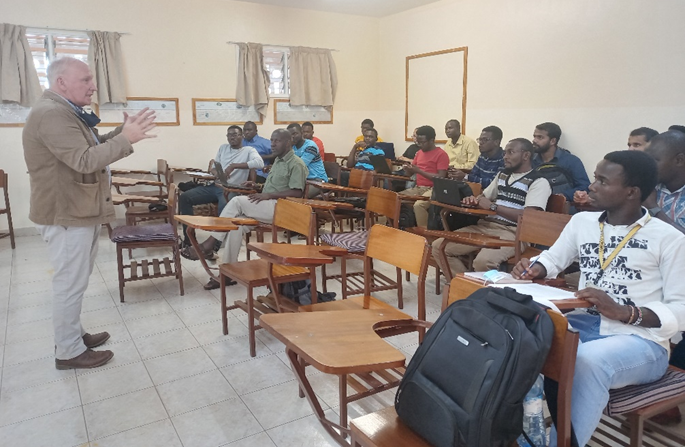
Shalom-SCCRR and the United Nations (UN) Accreditation
The United Nations Department of Global Communications approved Shalom-SCCRR to be associated with the Department which works with diverse civil society organisations ranging from small groups to subsidiaries of large networks and academic institutions around the world. The organizations associated with the Department gain access to UN Headquarters in New York to attend meetings, events and informational sessions, and to network with other organisations and UN entities (https://www.indcatholicnews.com/news/40609).
This recognition of Shalom-SCCRR by the UN is an opportunity for it to work with the 1,500 associated NGOs in furthering the goals and objectives of creating a better and more peaceful
world together. These NGOs also play an important role using their own communications platforms with their members and beneficiaries to highlight commitments made by governments and world leaders, such as the agreement by world leaders to achieve the 17 Sustainable Development Goals (SDGs) by 2030 ( https://shalomconflictcenter.org/3901-2/).

The Sustainable Development Goals (SDGs) in the Context of Peace and bearing in mind that Shalom-SCCRR is accredited to the UN.
SDG No. 16 aims to promote peaceful and inclusive societies for sustainable development, provide justice for all, and build effective, accountable and inclusive institutions at all levels. It asks “how can a country develop – how can people eat and teach and learn and work and raise families – without peace? And how can a country have peace without justice, without human rights, without government based on the rule of law?”
That goal is specifically focused on positive peace in societies where sustainable development can take place and be effective. Shalom-SCCRR maintains and brings clarity in its modus operandi to need for all the SDGs to be inter-linked and predicated on a minimum of negative peace (mere absence of manifest violence) and the realisation of positive peace (where all sides choose to be mutually committed to the security, development and wellbeing of each other). The recognition that sustainable development without sustainable peace is not possible is imperative.
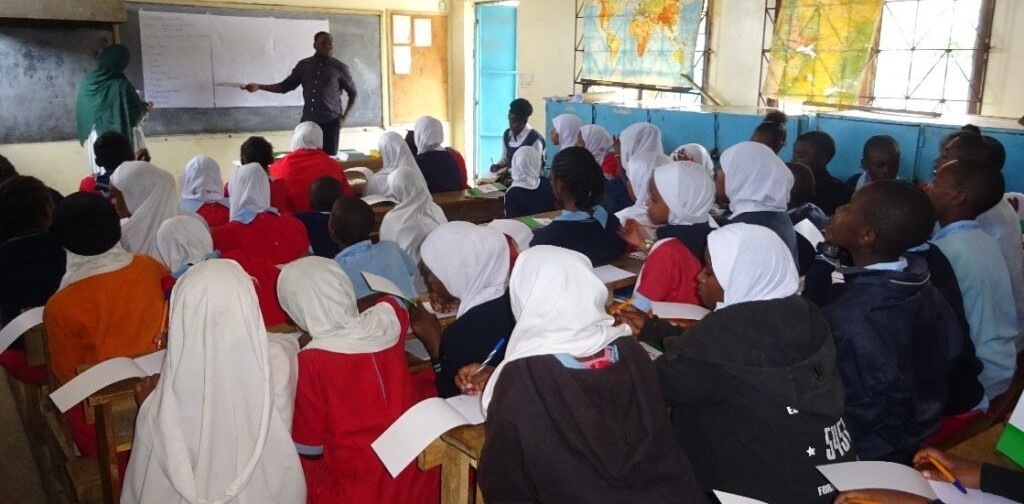
The UN Sustainable Peace Initiative has placed preventive action and post-conflict peace-building on par with peace-keeping. The report by the Secretary General to the High Level Meeting on Sustaining Peace held in New York in April 2018 laid the groundwork for an important policy-breakthrough, empowering civilians with new tools, better management practices, and hopefully new financial resources to contribute to a more integrated and coherent framework for global conflict management that delivers positive peace.
Important features of the Initiative are:
- It elevates the role of civil society and regional organisations in sustaining peace.
- It stresses that the UN development system and development practitioners in general are central to conflict prevention and sustaining peace.
- It buttresses the case for “more predictable and sustained financing” for civilian-led peace-building through a proposed Funding Compact with Member States, against the backdrop of declining development assistance to conflict-affected countries as a share of global aid (from 40% in 2005 to 28% in 2015).
We welcome the elevation of the role of civil society in sustaining peace and support the case for “more predictable and sustained financing” for civilian-led peace-building. Shalom-SCCRR from its origin has progressed the empowerment of civil society parties experiencing conflict to be the architects of their future of mutual coexistence and interdependence. Based on our professional knowledge and practical experience, Shalom continues to be well placed to play a leading role within civil society and in collaboration with other actors, particularly in the promotion of ideas and suggestions for consideration in various nations overseas aid programmes.
Peacekeeping as a priority focus alone operationalized as a response reaction to manifest and structural violent conflict is extremely limited in terms of its contribution to achieving conflict resolution and reconciliation. We continue to advocate that more emphasis be applied to the Shalom-SCCRR methodology necessary for conflict resolution and reconciliation within a framework continuum of, ‘humanitarian interventions / research / conflict transformation / negative peace / development / positive peace’.
Our ongoing interventions to transform the underlying causes of inter-ethnic conflict, religious ideological extremism, and violence against women and children is inseparable from the ethos of peacebuilding that permeates Shalom-SCCRR’s vision and mission. We will continue to engage the UN and its’ international structures, the Dicastery for the Promotion of Integral Human Development in the Vatican and with the Permanent Observer Mission of the Holy See at the UN in New York.
Engaging the future with optimism, judiciousness and dynamism
As a process, ‘Shalom’ is about achieving integral human security and development among and between people. All of us, together, can bring about deep-rooted transformation and resolution of conflict generating factors and structures-institutions, through rigorous research, conflict management training, peace education, problem-solving workshops, developing inter-ethnic and inter-religious infrastructural projects – especially educational institutions and other ‘human rights’ edifying initiatives.
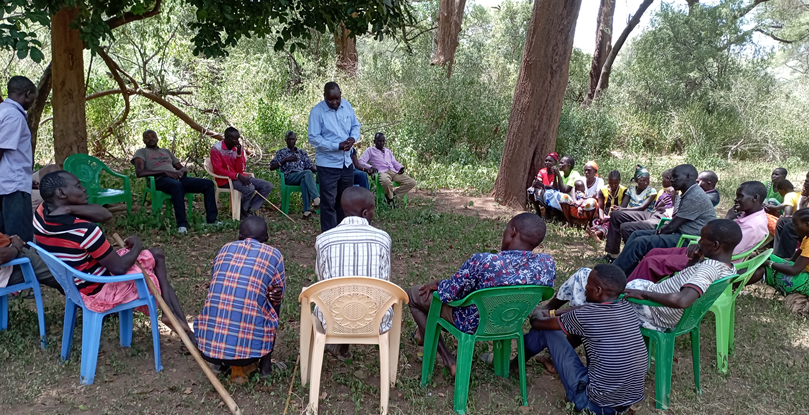
The Shalom-SCCRR vision points to adherence to the right long-term policies in our approach to conflict resolution and reconciliation, resisting to settle for ‘short term political quick fixes’ or the transient gains of myopic insular partisanship. Many people in remote, violent and poverty-stricken environments are waiting to experience ‘Shalom’. Right long-term policies should always take precedence over the lure of myopic short-term political agendas; this philosophy will continue to be at the core of our intervention objectives which are:
- Equipping purposively selected locals with analytical skills and peacebuilding techniques for use in conflict problem solving and reconciliation workshops.
- Generation of sound knowledge of why/how there is inter-ethnic conflict through empirical research on which to base peacebuilding initiatives/activities, and which also lends itself to informing government/IGAD policy practices in the context of localised inter-ethnic/inter-communal conflict occurrences.
- Augmenting the conflict transformation role capacities of religious organisations, civic organisations, and non-governmental organisations.
- Training local government administration and security personnel in conflict analysis and procedural peacebuilding approaches to settle and resolve conflicts.
- Constructing and equipping inter-ethnic and inter-religious schools and institutions with requisite facilities for the purpose of countering, among other things, distrust of ethnic other as well as harbouring or tending to perceive hostile intentions in the behaviour of ethnic other, thereby fostering inter-communal peaceful co-existence.
- Responding to humanitarian, infrastructure supports and conflict transformation implications arising from the emergence of Covid-19 in Eastern Africa.
- Shalom-SCCRR preparedness with prevention and reconciliation processes in place if required, focused on the upcoming 2022 national elections in Kenya.
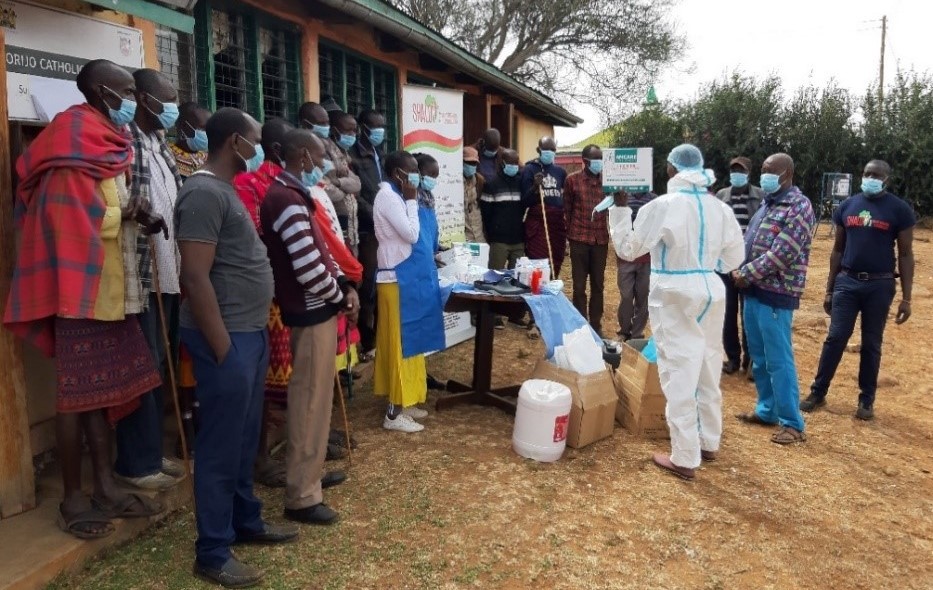
In thanking our donors again and those who offer prayers and well-wishers, let me assure all that Shalom- SCCRR will continue to be diligent in fulfilling our objectives to the highest standards in the years ahead. We should never forget that all that is needed for evil to triumph, whether in the form of violence, injustices, deceit, maliciousness or envy, is for good people to do nothing. From a short and a long-term perspective, being an armchair general or parasitically sitting on the fence while millions suffer from manifest conflict and marginalization is an appalling indictment.
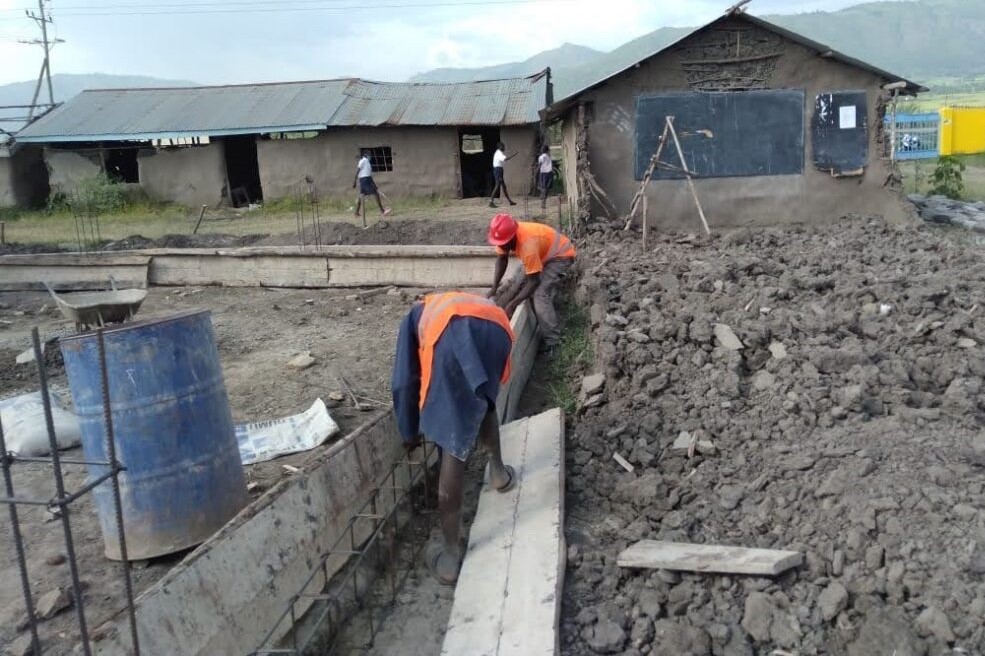
There are no limits to the positive interventions that can be made to bring about sustainable peace, development and reconciliation. We all need continual assistance, education and formation in order to know what makes for peace! The road to peace is not easy but the quest is essential in order to ensure human dignity and survival, environmental security, and the opportunity to experience the ‘Divine Spirit’ in all its vitality. As the Man from Nazareth once said, ‘if this day you only knew what makes for peace’.
Our conflict transformation, peacebuilding and integral human development interventions going forward will center on acknowledging the past, reframing the present, and envisioning a future built on the authentic realisation of Shalom-SCCRR’s vision, mission and objectives.
SHALOM, SALAAM, SALAMU, SALEM,

Rev. Patrick Devine PhD
Chairman, Shalom-SCCRR, Kenya
SHALOM-SCCRR TEAM IN EASTERN AFRICA DURING 2022
Board of Directors (Kenya)
Rev. Dr. Patrick Devine, Chairman
Prof. Peter Wanyande, PhD, Board Member (Eastern Africa – Research)
Dr. Michael Comerford, Board Member, (South Sudan)
Rev. Oliver Noonan MA (PhD Candidate), Executive Director
Ms. Rosaline Serem, MBA, Board Member, (Kenya)
Mr. Sean White, MSC, Board Member (Kenya)
Rev. Janus Machota, BD, BA, Board Member, (Tanzania)
Management
Mr. Godfrey Okoth MA (PhD Candidate), Senior Project Officer
Mrs. Judith Akedi-Otsieno MA, Project Officer, Team Leader
Mr. Francis Mwangi MA, M.E.R.L Officer
Mr. Austin Ngacha, MA, Project Officer, Team Leader
Mr. Arthur Magero, MA, Project Officer, Team Leader
Ms. Esther Kibe, MA, Project Officer, Team Leader
Mr. Kennedy Odhiambo, MA, Project Officer
Mr. Moses Osiro, MA, Project Assistant
Ms. Ilhan Ali Salah, BA (MA Candidate,) Shalom-SCCRR In-Training Capacity Program
Sr. Jovalet Ariho BA (MA Candidate), Shalom-SCCRR In-Training Capacity Program
Mr. Kipkoech Kipruto, B.Com. ACCA, Accountant
Mr. Remmy Ndiema, B.BM, CPA, Assistant Accountant, Further Studies
Ms. Vivian Adhiambo Omondi, BA (MA Candidate), Shalom-SCCRR In-Training Capacity Program
Mr. Ken Otieno Dipl. PPM, Transport /Logistics Coordinator
International Volunteer Consultants
Mr. Patrick Geysen, MA, (Former Deputy Head of EU Delegation, Djibouti)
Mrs. Nancy Mirera, MA, (Counselor-Psychology, Mental Health Worker, Mediator in A.D.R)
Ms. Sheena McMullen, MA, (Peace and Reconciliation Studies, N. Ireland/UK)
Ms. Paula Soumaya Domit, (Harvard Kennedy School, Masters of Public Policy Program)
Ms. Matilda Brolin, LL.M. (Harvard Law School, Embassy of Sweden to the Democratic Republic of the Congo)
Ms. Fabiana Pardi Otamendi, LLM, (Harvard Law School, UN Human Rights, Freshfields Bruckhaus Deringer, France)
Mr. Andrés Oviedo, MA (International Relations, Universitat Autónoma de Barcelona). Postgraduate Studies in Human Rights, International Humanitarian Law and Culture of Peace. Liaison Officer at the United Nations Verification Mission in Colombia (UNVMC).
Rev. Dr. Emmanuel Tembo, (DRC Congo and Great Lakes Region)
Dr. Conrad Bosire, (Constitutionalism and Devolution, Kenya, East Africa)
Find Shalom-SCCRR 2009-2022 results and achievements in the link below.

